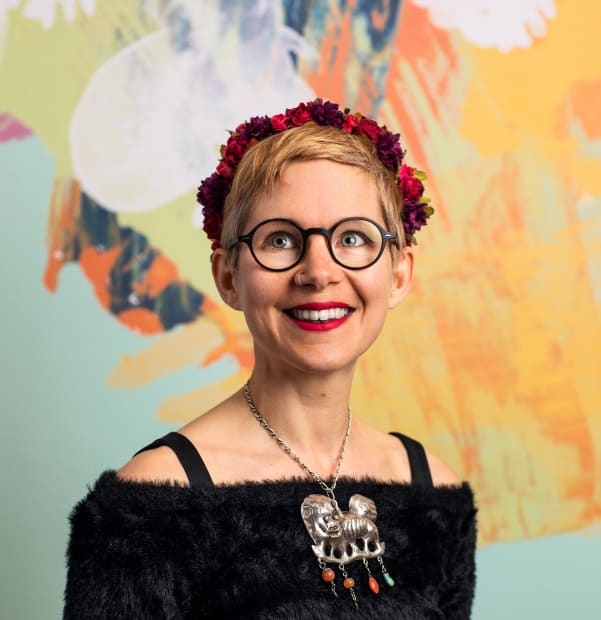-

Photo credit - Josh Mowll
-
Towards Ecological Art
By Anna Souter
Kerry Lemon’s artwork is deeply interconnected with the local ecosystems which both inform and host the work. Each piece draws on extensive and site specific research, highlighting the local flora and fauna in intimate small scale works, or reintroducing into towns and cities traces of the plants and insects that might be thriving there were it not for the necessity of pavements and buildings.
In an expansive practice ranging from sculpture, performance, painting and film, her pieces unfold across a web of interrelated materials, images and objects. They exist simultaneously as an ecosystem of their own and as a ghostly spectre of the delicately balanced variety of species which we know is under threat from climate breakdown, pollution, and development.
Ecological art functions within acknowledged times and spaces; a part of its environment, not apart from it. The various manifestations of Lemon's work appear contiguously with their setting, becoming the setting in the process – an example of art-as-environment. Visitors can sit on the giant leaves of Birch or tread on the delicately gleaming silhouettes of local plants in the paving. These works are interactive and experienced through the body. They invite audiences to rest, to play, to navigate our public spaces and elevate them through cultural placemaking. Lemon's imaginative world wavers in and out of focus as visitors hurry past or stop for a moment, attention caught perhaps by a glimmer of brass or the flicker of a light.
In these pubic artworks, her commitment to regenerative sustainability often sees the integration of habitats within the works. Each piece thus quietly orchestrates encounters between its human and nonhuman visitors. Through these foregrounded relationships, Lemon attempts to make visible the many intentions and agencies that coalesce to create a sense of place, subtly encouraging a form of active citizenship and environmental stewardship among local communities. The focus on Womxn and affinity with local flora through this lens is an important and recurrent thread of her practice.
Lemon’s work is a creative rewilding of urban space, engaging visitors’ imaginations and curiosity regarding the nonhuman beings whose lives are contingent to their own. Reaching out into the surrounding ecosystems, the projects visually map and celebrate the specificity of the local environment. She utilises creative practice as a way of prompting ecological awareness, asking visitors to recognise their own shared embeddedness within wider systems. Her accurate depictions demand a quality of looking, of paying deep attention as a tool to take notice of the rich living worlds which surround us.
Ecological awareness is an explosion of context – a recognition that everything is always unfolding into everything else, sending out infinite ripples of cause and effect. Lemon similarly reminds us that everything is interconnected. Her work transmits in multiple directions, rippling through archives, landscapes, and bodies of knowledge to celebrate and strengthen our relationship with the natural world.
Anna Souter
